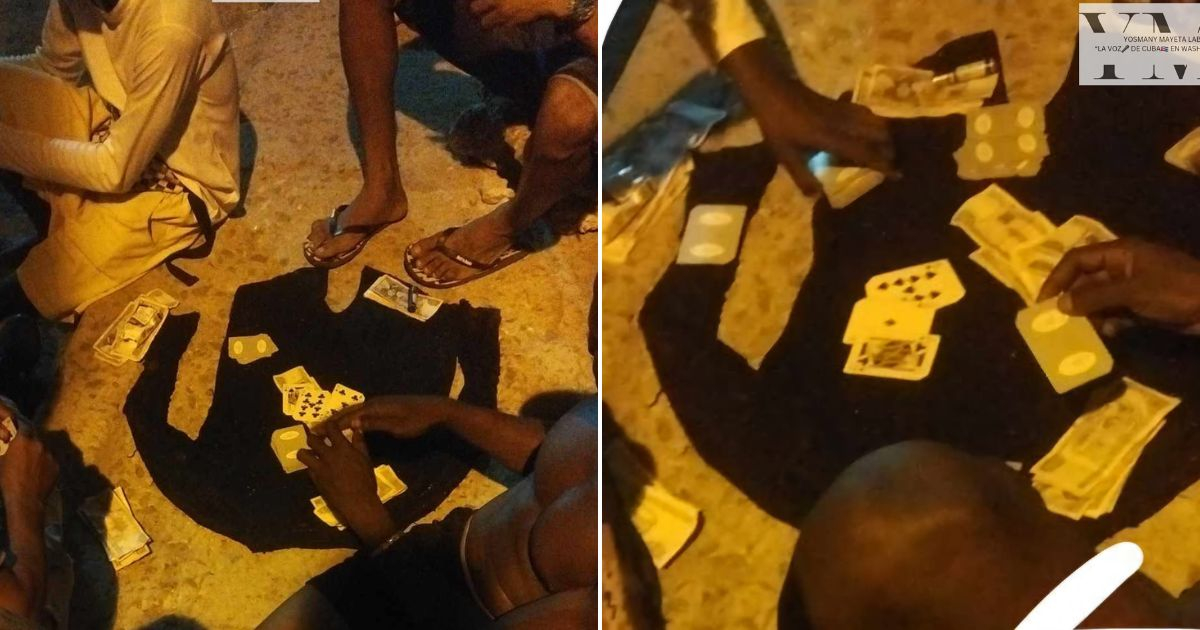
Nighttime blackouts in Santiago de Cuba have become the perfect setting for a group of young people to bring out their cards and engage in street gambling for money, an illicit practice that has been targeted by the regime for years.
The communicator Yosmany Mayeta posted on Facebook last Friday that this is how some people have found ways to cope with the long and difficult hours without electricity, enduring heat and being besieged by mosquitoes.
According to the independent journalist, this practice has “always been the preferred entertainment for young people in all the peripheral neighborhoods throughout Cuba,” warning that it has increased in the eastern city due to the worsening economic crisis and power outages.
"It is the main event when the blackout arrives," emphasized Mayeta on social media.
A person named Ruben Salmon mentioned that not only are cards played, but also dice, and that the latter game has even led to fights among the players.
The late dictator Fidel Castro, after coming to power in January 1959, prohibited gambling by law, a measure reaffirmed in 2022 in the new Penal Code.
Article 281.1 states that “anyone who engages in activities as a banker, collector, marker, or promoter of illegal games” will be “punished with imprisonment for one to three years or a fine of 300,000 units, or both.”
Similarly, the law states that if the crime "is committed by two or more people, or involves minors under the age of 18," the punishment will be "imprisonment for a period of three to eight years."
Additionally, the regulatory legal framework includes prohibitions on casinos, illegal cockfighting rings, and the lottery, also known as "bolita," in Cuba.
A man from Puerto Padre, Cuba, fell victim to the regime's crackdown on illegal gambling.
The man was arrested and charged with several offenses, including "illegal gambling," during a police operation in which a large amount of money and high-quality roosters were seized.
Filed under: